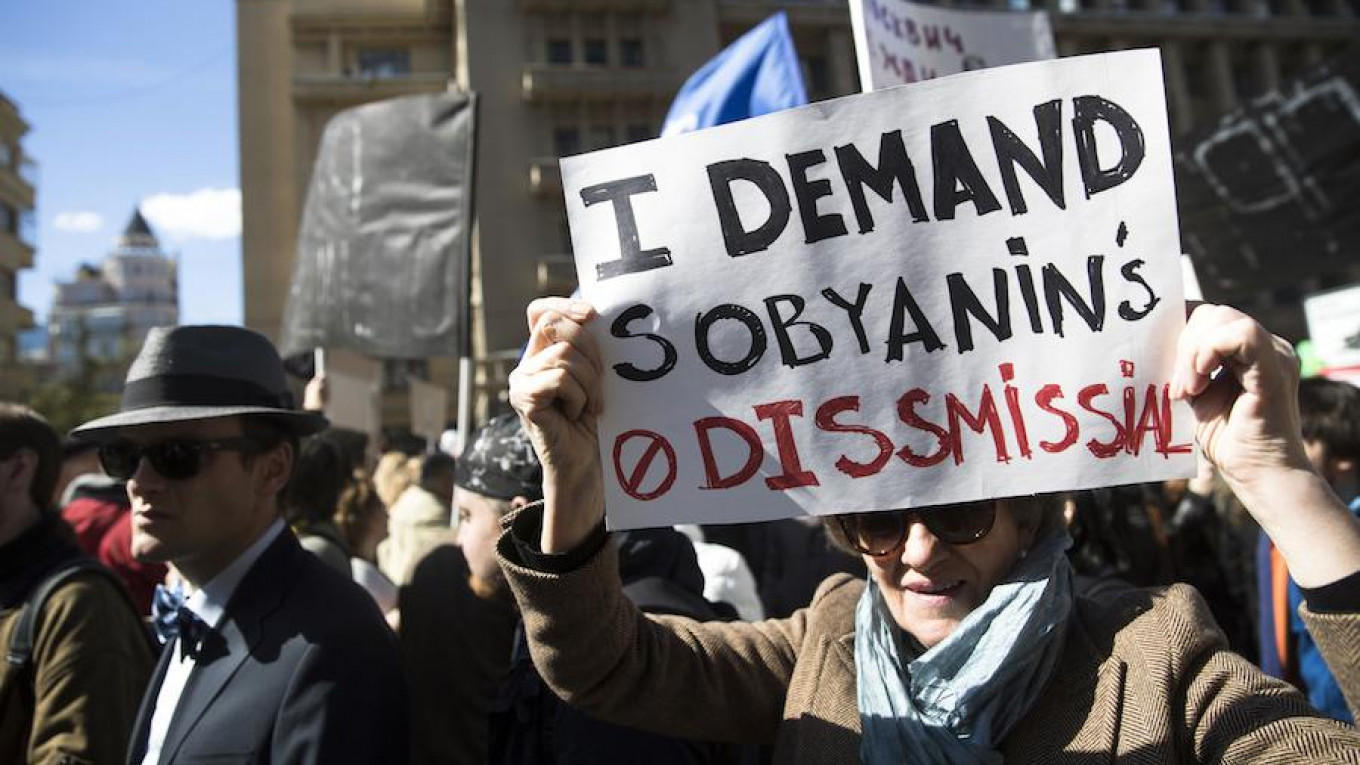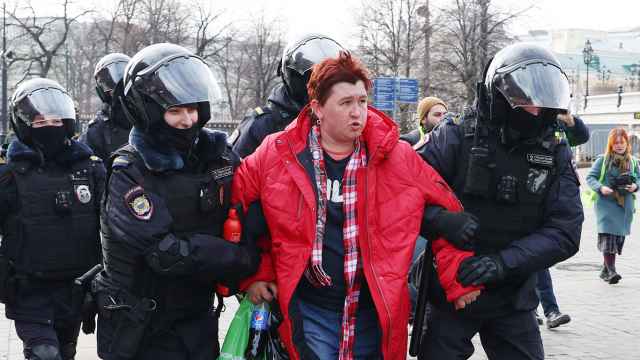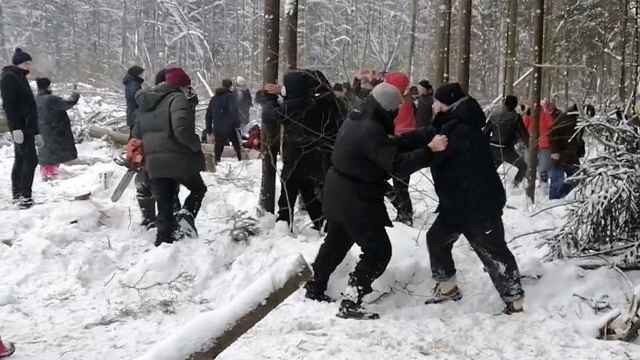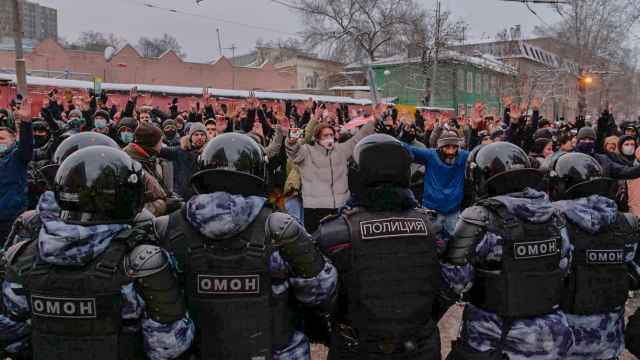More than 8,000 marched in the streets of Moscow Sunday to protest the demolition of the capital's four and five-story residential buildings.
Crowds gathered on Academic Sakharov Prospect to rally against the Moscow Mayor's flagship project, which would see more than 4,500 low-rise apartment blocks destroyed.
Officials estimated between 5,000 and 8,000 demonstrators participated in the rally, while activist group Beliy Schyotchik put the number at 20,000.
The protest was not linked to any political movement or party, despite that Russian presidential hopeful Alexei Navalny appeared in the crowds alongside his family. Navalny was later escorted away from the rally by the police, the Meduza news site reported.
Residents affected by the plans will be able to voice their opinions on the plans using the Moscow government's online web portal from May 15.
Moscow City Hall has pledged that buildings currently listed for demolition will only be destroyed if at least two-thirds of residents agree with the plans. Those who do not vote will automatically count as being in favor of demolition.
Residents who wish to vote will need to provide their passport data, SNILS number and utility bill information. The data will be verified online in a process lasting up to four days before the vote is formally registered.
Moscow Mayor Sergei Sobyanin announced in February that Moscow's remaining post-war, pre-fabricated apartments — affectionately known as Khrushchevki — would be demolished over the coming years.
He said that 1.6 million Muscovites lived in the low-rise buildings, which he described as “uncomfortable, largely dilapidated housing.”
City Hall has pledged to rehouse residents affected by the plans, providing them with a new apartment "equal in size" to their former home. Sobyanin also announced on Friday that residents could opt for a cash payment instead.
Many Muscovites have been quick to rally against plans, with some concerned that replacement apartments could be worth less than their original property.
Others are worried that developers will replace the buildings with high-rise apartment blocks in order to increase profits, overwhelming local infrastructure.
A Message from The Moscow Times:
Dear readers,
We are facing unprecedented challenges. Russia's Prosecutor General's Office has designated The Moscow Times as an "undesirable" organization, criminalizing our work and putting our staff at risk of prosecution. This follows our earlier unjust labeling as a "foreign agent."
These actions are direct attempts to silence independent journalism in Russia. The authorities claim our work "discredits the decisions of the Russian leadership." We see things differently: we strive to provide accurate, unbiased reporting on Russia.
We, the journalists of The Moscow Times, refuse to be silenced. But to continue our work, we need your help.
Your support, no matter how small, makes a world of difference. If you can, please support us monthly starting from just $2. It's quick to set up, and every contribution makes a significant impact.
By supporting The Moscow Times, you're defending open, independent journalism in the face of repression. Thank you for standing with us.
Remind me later.






